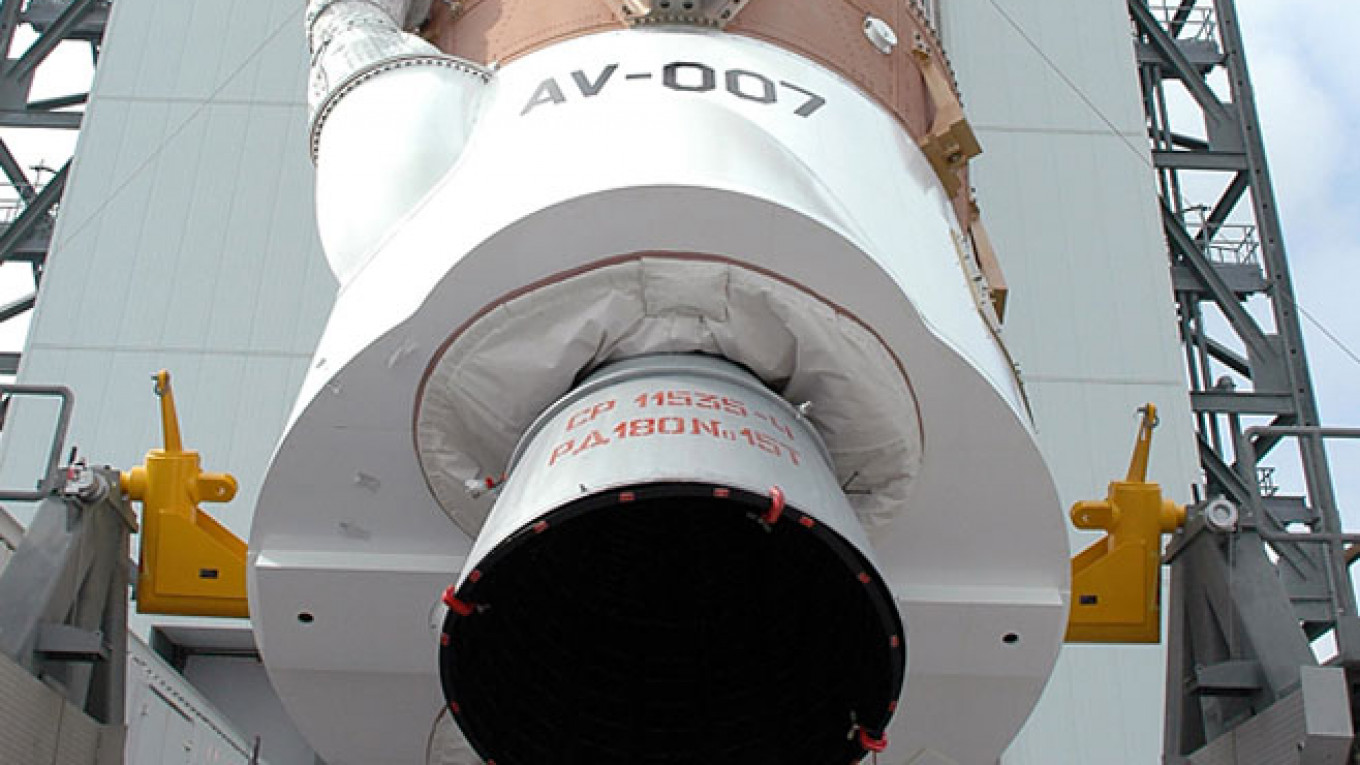WASHINGTON — The crisis in Ukraine has not jeopardized the longstanding relationship between the U.S. Air Force and the Russian company that builds engines for the rockets used to launch large U.S. government satellites, a U.S. official said.
"We are monitoring very closely the current bilateral situation to make sure that we can protect that supply," said Air Force undersecretary Eric Fanning. "I have not seen anything on either side suggesting that supply is in jeopardy."
The RD 180 rocket engines are used by United Launch Alliance, a joint venture of Lockheed Martin and Boeing to power the venture's Atlas V rockets.
Fanning told reporters on Tuesday that the Air Force had enough of the engines, which have been built exclusively by Russia's NPO Energomash since 2002, to support launches of military and intelligence satellites well into 2016.
U.S. reliance on Russian engines has long concerned U.S. lawmakers, but those worries were heightened by mounting tensions between the U.S. and Russia over Russia's seizure of Crimea, an autonomous region in Ukraine. U.S. Senator Richard Durbin, who heads the Senate Appropriations Committee's defense subcommittee, raised those concerns during a March 5 hearing on efforts to reduce the cost of the Air Force's program for launching large security satellites.
"Given the turmoil going on in Ukraine and Russia, it is more important now than ever to reinvest in America's own space infrastructure and programs," said Stephen Cheney, a retired Marine Corps general and chief executive of the nonprofit American Security Project. "Continuing to launch U.S. rockets into space that are powered by a Russian-made engine puts our national security and military readiness at risk."
Fanning said the U.S. was exploring ways to ensure a varied supply of the engines, including possible production in the U.S. if the Russian firm agreed to sell a license for the work.
"There are a number of concerns that the Air Force has, and others have, any time we are relying on such an important piece of equipment from vendors outside the U.S.," he said.
Fanning said the search for an alternate source of the engines predated the ongoing violence in Ukraine, but emphasized that the U.S. partnership with Russia and the engine maker remained solid.
He also said the Air Force was keeping an eye on a Pentagon investigation into how U.S. weapons makers manage their supply chains after Chinese raw materials or components were found on U.S. weapons systems, including Lockheed Martin's F-35 and F-16 fighter jets, Boeing's B-1B, and the SM-3 IIA missile.
U.S. law bans weapons makers from using raw materials from China and a number of other countries over concerns that reliance on foreign suppliers could leave the U.S. military vulnerable.
Pentagon chief arms buyer Frank Kendall issued five waivers to U.S. laws banning Chinese parts on the four U.S. weapons systems, after concluding the parts posed no risk.
A Message from The Moscow Times:
Dear readers,
We are facing unprecedented challenges. Russia's Prosecutor General's Office has designated The Moscow Times as an "undesirable" organization, criminalizing our work and putting our staff at risk of prosecution. This follows our earlier unjust labeling as a "foreign agent."
These actions are direct attempts to silence independent journalism in Russia. The authorities claim our work "discredits the decisions of the Russian leadership." We see things differently: we strive to provide accurate, unbiased reporting on Russia.
We, the journalists of The Moscow Times, refuse to be silenced. But to continue our work, we need your help.
Your support, no matter how small, makes a world of difference. If you can, please support us monthly starting from just $2. It's quick to set up, and every contribution makes a significant impact.
By supporting The Moscow Times, you're defending open, independent journalism in the face of repression. Thank you for standing with us.
Remind me later.






